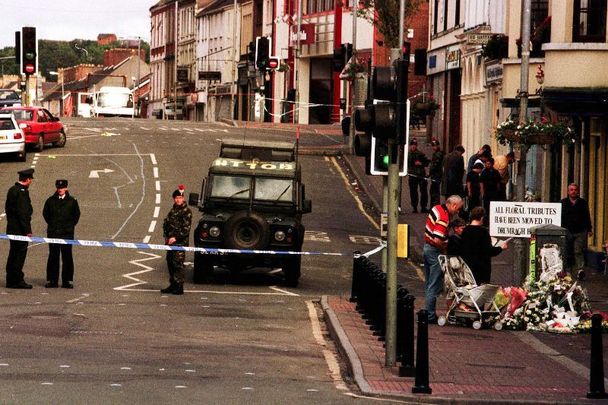The Omagh inquiry, which was announced in February, is intended to establish the preventability of the Real IRA bombing in August 1998, which killed 29 people and two unborn children, and injured 220 others.
It has been established under the Inquiries Act 2005, and has the power to compel the production of documents and to summon witnesses to give evidence on oath.
The chair of the inquiry, Lord Alan Turnbull, has had a lengthy judicial career in Scotland, serving most recently in Scotland’s Supreme Courts.
His appointment to the role of chair of the Omagh Inquiry, which was confirmed on June 12, follows a recommendation made by the Lord Chief Justice for England and Wales, in conjunction with his counterparts across the rest of the UK.
Twenty five years on, the Government has the deepest sympathy for all of those affected by this atrocity.
I will be discussing and agreeing the Terms of Reference for the Inquiry with Lord Turnbull, which will be published as soon as possible.
2/2
— Chris Heaton-Harris MP (@chhcalling) June 12, 2023
Confirming the announcement via a written ministerial statement to Parliament, Heaton-Harris said, “Lord Turnbull’s long-standing judicial career and his previous experience of working on terrorism cases will provide the highest levels of knowledge and professionalism.
“I have no doubt that Lord Turnbull will bring to the inquiry the required rigor, independence, and impartiality, and I am grateful to him for accepting this important job.”
The Omagh bombing
On the afternoon of August 15, 1998, just a few months after the signing of the Good Friday Agreement, a car bomb was detonated in town of Omagh in Co Tyrone, Northern Ireland.
21 people were killed in the explosion, another eight people died in the hospital, and 220 others were injured, making it the single deadliest incident of The Troubles in Northern Ireland.
The attack was carried out by the Real Irish Republican Army (Real IRA), a Provisional Irish Republican Army (IRA) splinter group that opposed the IRA's ceasefire and the Good Friday Agreement, signed earlier in the year.
In 2009, a landmark civil trial found Michael McKevitt, Liam Campbell, Colm Murphy, and Seamus Daly liable for the bombing. Seamus McKenna, a fifth man in the trial, was cleared of liability.
The four men were ordered to pay £1.6 million ($2.2 million) to the 12 relatives of the victims who took the case to court.
No one has been held criminally liable for the Omagh bombing.
Announcing the inquiry earlier this year, Secretary Heaton-Harris said it will "focus specifically on the four grounds which the court held as giving rise to plausible arguments that the bombing could have been prevented."




Comments